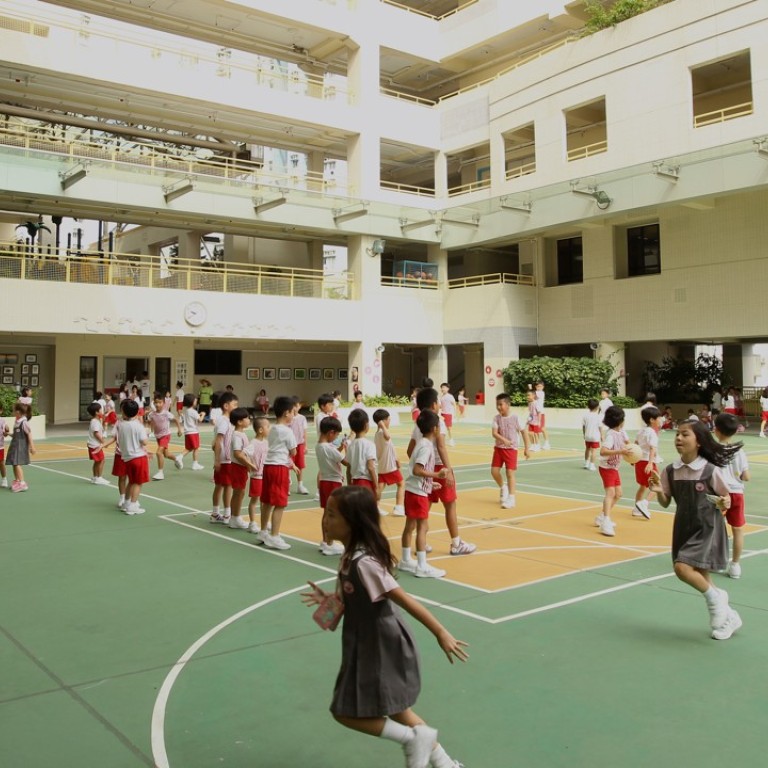
Letters to the Editor, October 19, 2017
Let children learn through play as well
I am a teacher in a local Hong Kong primary school and before that I worked in a learning centre teaching English. I find that the parents here put the most unbelievable pressure on their children to succeed and do well academically, meaning they have no time to behave like children in between their extra English, maths, and violin and other lessons. I used to teach kids until 7pm and they left my centre to go to another class.
Now I am studying at the University of Science and Technology with numerous mainland and local Hong Kong students, who have also felt this immense pressure to study postgraduate courses just to get themselves a job.
One person in your article said “Is this to fulfil the parents’ vanity or to make the children happy?” I think the answer is neither. It seems in Hong Kong and on the mainland that the children, and therefore the parents, have no options other than to have extra classes to set them apart from others.
It’s a tough place to be a child and I think that playing more games and encouraging creativity would be the best way to set children apart. Unfortunately, that mindset isn’t one that is shared by education systems here. Drilling through extra lessons is seen as far more important than learning through play.
Natasha Horn, Wan Chai
Don’t write off Britain as a spent force
While we might expect such negative views from someone born in a former British hill station, and while acknowledging the current disarray in Britain’s ruling Conservative Party, Lhatoo ignores the global soft power that the UK exerts in terms of culture (literature, music and sport) and values (parliamentary democracy, rule of law, tolerance and inclusiveness). Though Britain’s armed forces may be relatively small compared to those of the US and China, the country still has the sixth-largest gross domestic product in the world.
Although Brexit is a highly controversial subject, the UK is now trying to strengthen its links with the 52 nations of the Commonwealth, which are bound together by shared traditions and a common language.
If the UK succeeds in diversifying its trade with this powerful global network, and given the proven resourcefulness of its people, Britain might well see off the pessimists who perceive the country to be in terminal decline.
Peter Mann, chairman, Royal Commonwealth Society, Hong Kong Branch
Students can get a lot out of e-learning
As modern technology becomes more advanced, it is making a difference in so many walks of life, such as medicine, scientific research and building infrastructure. It can also help in the field of education.
It can make it easier for students to grasp complex subjects. Electronic books can show images and short videos that you cannot find in a textbook. This can help students grasp a complex concept.
Virtual lessons using, for example, tablets can also make the learning experience more interesting and enjoyable.
I also think new technology can improve the retention rate of students. According to one study, students found they had a better understanding of a presentation, because it had been done using PowerPoint.
I hope more subjects will be taught through e-learning.
Mario Man Yuk-kin, Po Lam
School bullies should not be tolerated
Schools in Beijing have a serious bullying problem. With the growth of the internet, there is now also cyberbullying, which makes addressing it more difficult. By contrast, in Hong Kong, teachers and social workers take this problem seriously and are willing to crack down on the bullies. There are people who these young victims can go to for help.
Rainbow Or, Tseung Kwan O
Starter homes scheme won’t help many
Only a limited number of citizens will benefit from the “starter homes” scheme announced in the chief executive’s policy address last week. The scheme will target young couples with a monthly income of between HK$52,000 and HK$68,000, so many young people will not be eligible.
There are residents who earn more, but because of skyrocketing property prices still cannot afford the down payment for a mortgage.
So owning a flat will remain an impossible dream.
They will continue to have to pay high rents in the private sector, which makes it even more difficult to save for that elusive mortgage.
It saddens me that an increasing number of young people, because of limited financial resources, are being forced to rent in one of the city’s notorious subdivided apartments.
The fact that more people are being forced to resort to them illustrates that there is a lot more the government must do to deal effectively with the city’s housing problem.
Andy Yeung, Tiu Keng Leng

